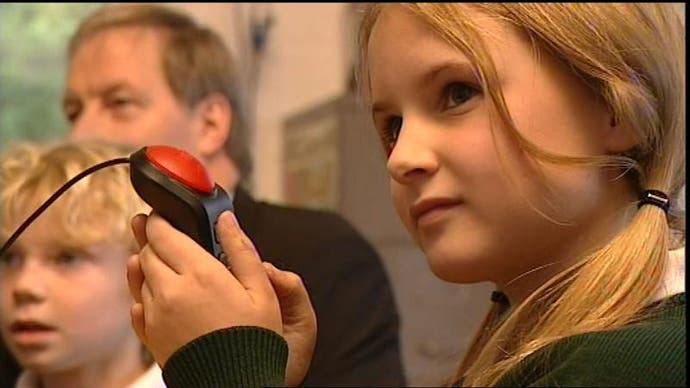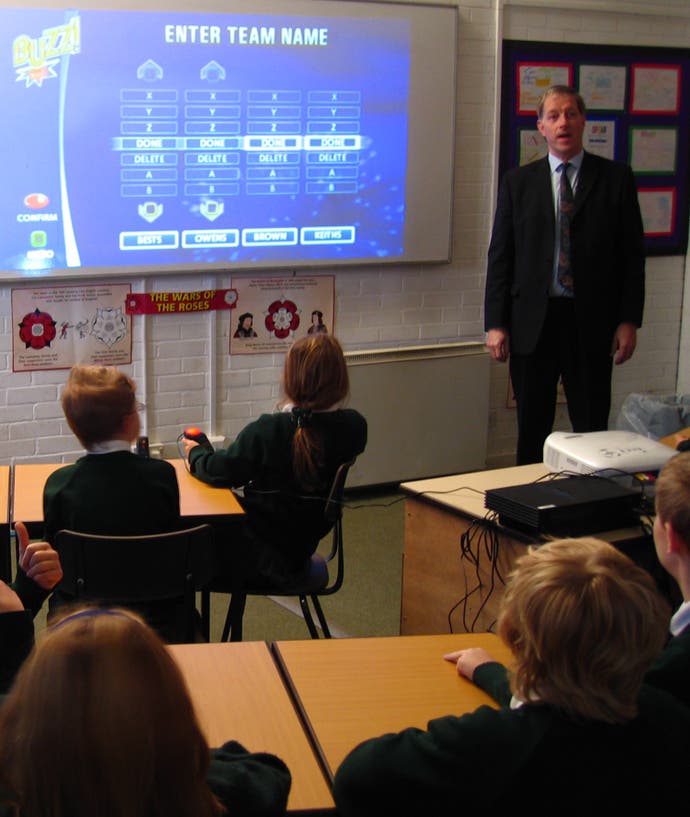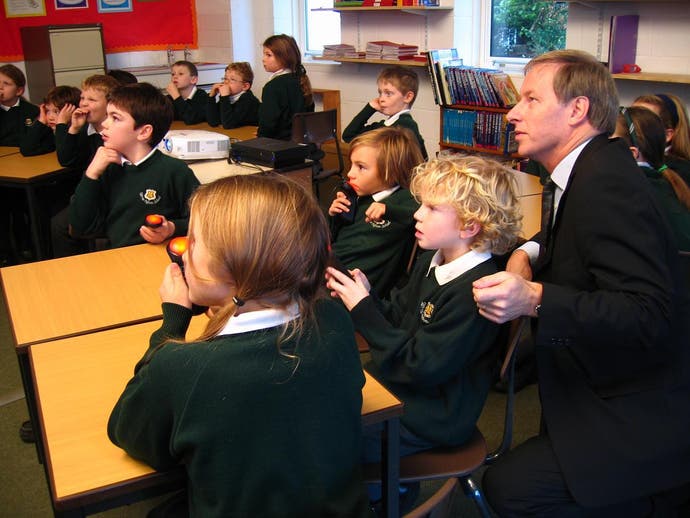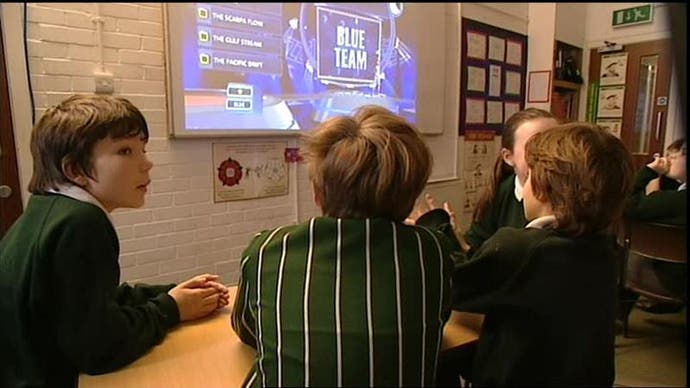Buzz!: The Schools Quiz
How Relentless went from entertainment to education.
Much as we'd sometimes like to convince ourselves otherwise, we spend our days writing a silly website about videogames. Among our nearest neighbours in Brighton is Relentless Software, best known for the Buzz! series of games for PlayStation 2, and soon PlayStation 3. What they generally do is make silly quiz games about popular culture.
But that's going to change somewhat today with the release of Buzz!: The Schools Quiz. The Schools Quiz has been created in partnership with the Department for Education and Skills (DfES), and uses more than 5,000 questions based on the Key Stage 2 Curriculum, used to teach and assess children in the UK aged between 7 and 11. It's being sold at retail, but it's also being made available to schools.
Tomorrow, we'll still be writing a silly website about videogames. They'll be able to say they've done something a bit more noble. We caught up with co-founder Andrew Eades to find out how The Schools Quiz came together and what the reaction's been like from teachers and children.

We noticed two things whilst making Buzz!: The Music Quiz. The first thing was that we were beginning to know quite a lot of music trivia without really trying too hard. You know we didn't study a book of music facts but by just playing Buzz we found we knew a lot of relatively useless facts that we didn't know before. The second thing was that although the brief was to make a game for all the family which is what we strived to do, sometimes the questions were pretty much skewed at an older age range. My daughter who was 7 at the time got very excited about the buzzers and wanted to join in, but often found the questions too hard. We really wanted to do a kids' quiz but weren't sure how to do it.
So when David and I went to Edinburgh in August 2005 I think, we met someone from the DfES who had a remit to put interactive games into schools. David showed him Buzz and we started talking about adapting it for school use. We spoke to Sony, who said that if we wanted to go ahead and make the game with our own funds, they would publish it for us. Luckily the DfES gave us some money to prototype the idea so we could trial it in UK schools.
Once we had the go ahead from Sony, we set about making a demo by adapting the Buzz game we'd already done. We'd set out to create a more flexible quiz engine after Music so this helped with the design of that also. We had to make BIG in a hurry so the fruition of the work we'd done here didn't really arrive until Mega which has powered Hollywood, Schools and Pop (out in March).

We didn't start from scratch as we knew we had to develop a more flexible framework. Although Mega came out first, the work really started with Schools as the team was building BIG at the time.
We focus test a lot but a lot of what I know about children comes from my eldest daughter and her friends.
The whole experience of taking Buzz into Schools has been brilliant. The teachers have been really supportive and have given us great feedback. We have reports of children staying in during their breaks to keep playing Buzz.
We used a specialist company, Schoolzone, to provide all the questions and run some of the in-school trials. Their day job is writing curriculum questions for schools so they were the perfect choice.

Key Stage 2 is 7-11 so there is scope to do different age ranges and we would like to do more. We chose this as the primary curriculum is quite broad and we would have to do many different Buzzes to cover all the secondary curriculum.
We were pleasantly surprised at how open to Buzz the schools have been. Some even said they were already using Buzz as a reward for golden time at the end of the week. We didn't go in saying we're going to change your world and show you how to teach kids. We were more humble than that and asked them to help us make this work for them.
I think games are a really positive thing for kids to enjoy. Sure there's a lot of flak about some of the more violent ones but they are not all like that. Games have been a part of my life since I was very young and they are a part of my children's lives. I think the positive benefit of interacting with these incredible worlds and solving puzzles and learning how to finish something is brilliant.

I don't claim to be able to make a difference. I think if game developers respect the fact that children in particular really like what they play and spend a long time playing games then they will put in small things.
Sony is publishing it. But we've funded it ourselves to get it out there. We really wanted to do something positive and this was a great opportunity afforded to us by the government. We don't make a penny from the version in schools but we will make money from retail sales if it sells well. We're very happy that we've been able to do this. We don't have the kind of cutthroat business mentality of some developers. We'd rather do something we're proud of.
Buzz!: The Schools Quiz is released today on PlayStation 2. Teachers can find more information on the game's official website and through ConnectEd.








